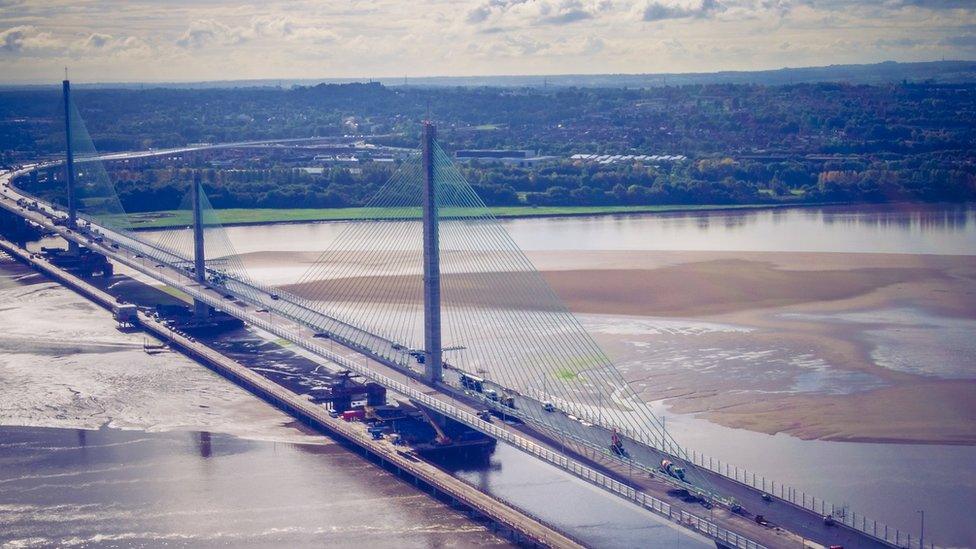Mersey Gateway Bridge toll system 'causing debt misery'
- Published

The charity claims the Mersey Gateway Bridge's toll system is too complex
Debts of up to £3,000 are being run up by families because of a confusing bridge toll system, a charity claims.
The Big Help Project in Knowsley said people on low incomes and with mental health issues were being "pushed to the brink" by the Mersey Gateway Bridge's complex toll system.
The charity called for a fairer payment system and urged bailiffs not to be used so quickly to collect debts.
Merseyflow said it was looking at how to "improve the customer experience".
The company collects the £2 tolls each way on behalf of Halton Borough Council.
However, the £600m bridge, which runs between Runcorn and Widnes, has no toll booths, meaning drivers pay the charge online or in a shop within 24 hours of making their journey.
Drivers who forget to pay the toll face a £20 penalty charge notice.
'Exorbitant charges'
But The Big Help Project, which runs a debt advice and food bank service, said it had dealt with many drivers who had faced much higher debts, including a man whose son used his car without permission and racked up debts of £624 and a woman who owes £2,990.
The charity said many people did not willingly forget to pay the toll, but found the system confusing, difficult to keep up with or did not have access to the internet to pay straight away.
Charity chief executive Peter Mitchell called on the Labour-run borough council to stop sending out bailiffs immediately and urged them to use a fairer payment system.
He said a toll barrier was necessary to "stop these exorbitant charges".
However an email from the council's chief executive David Parr, seen by the Local Democracy Reporting Service, said the Mersey Gateway had a "reasonable" tolling regime.
Halton residents and blue badge holders are eligible for discounts for the bridge through monthly passes and pre-pay accounts.
A spokesperson for Merseyflow said: "We are constantly working closely with our partners at the Mersey Gateway Crossings Board to look at ways of improving the customer experience and that includes exploring new initiatives and ways to pay."
- Published15 February 2019
